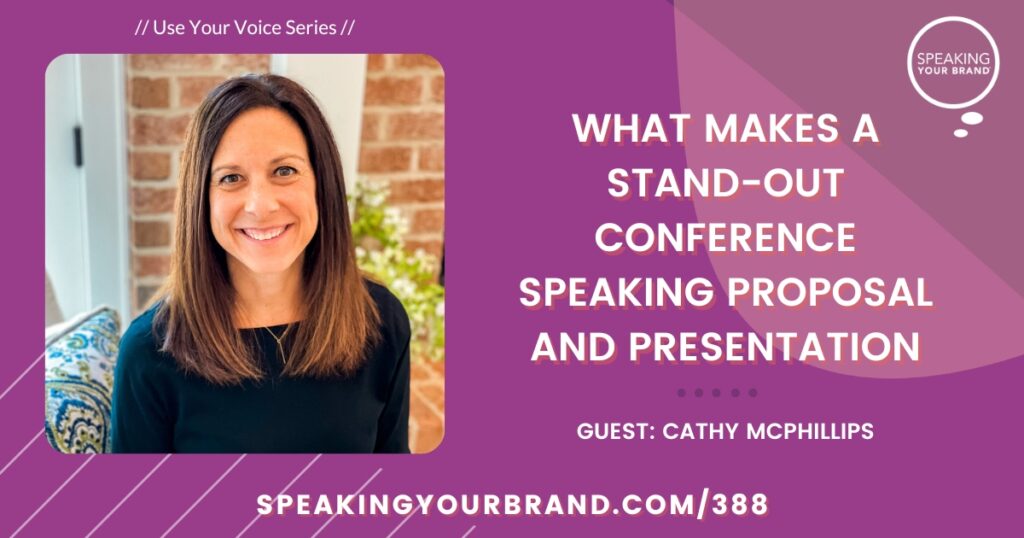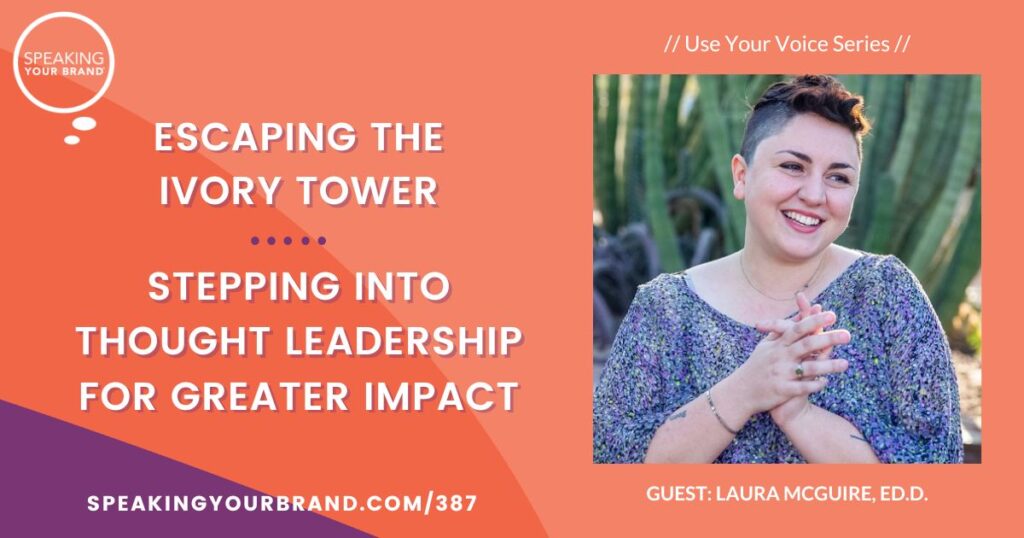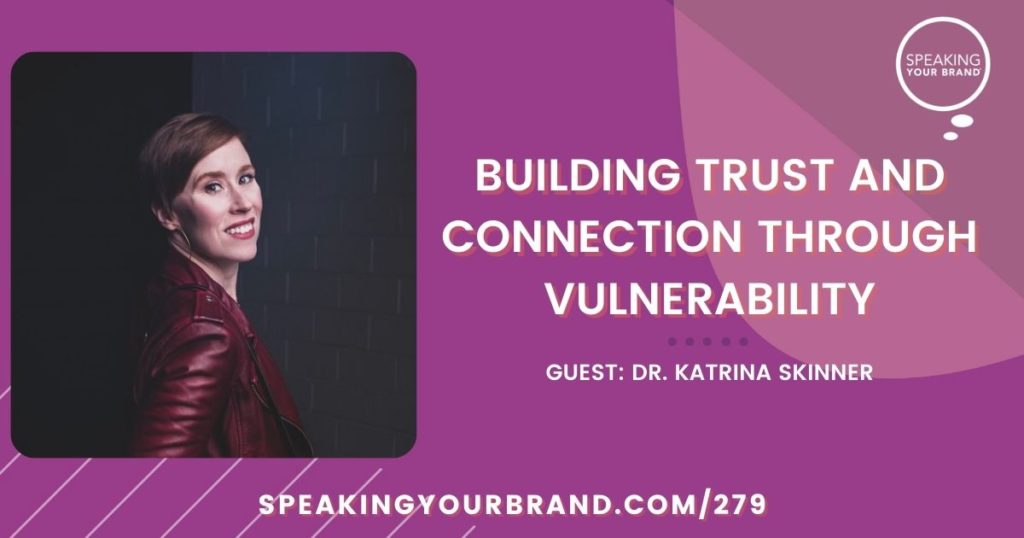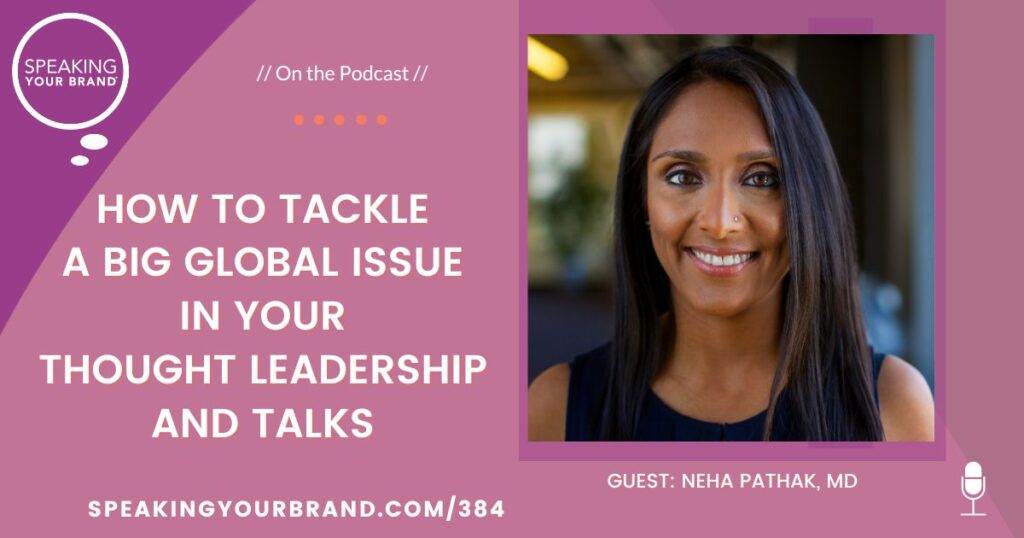279-SYB-Dr-Katrina-Skinner.mp3: this mp3 audio file was automatically transcribed by Sonix with the best speech-to-text algorithms. This transcript may contain errors.
Carol Cox:
How can you build trust and connection with your audience? Well, it’s through sharing vulnerable stories, which is what I talk about with Dr. Katrina Skinner on this episode of The Speaking Your Brand podcast. More and more women are making an impact by starting businesses running for office and speaking up for what matters. With my background as a TV political analyst, entrepreneur and speaker, I interview and coach purpose driven women to shape their brands, grow their companies, and become recognized as influencers in their field. This is Speaking Your Brand, your place to learn how to persuasively communicate your message to your audience. Hi there and welcome to the Speaking Your Brand podcast. I’m your host, Carol Cox. Do you have an experience that happened to you that you’re reluctant to share with your audience? Maybe it’s a situation, a story, something that happened to you, whether it’s when you were young or even as an adult, where you know that there are lessons in there for sure. You know, you learn lessons that have shaped who you are today, the path that you ended up taking, what you learned about yourself. But maybe it’s a story that you’re just not quite sure if it’s one that you would want to share with your audiences in your presentations and your keynotes.
Carol Cox:
So my question to you is what would happen if you did? So often I see that we feel like our stories are either too uncommon or unrelatable for audiences because they’re so specific that no one else would have ever had that situation. Or we feel like our stories are not interested enough or important enough or big enough to include in our talks. And then what I see happen is that speakers generalize their stories, and by doing so they remove what makes a great story. It may seem counterintuitive, but it’s the specificity and details of our stories the very thing we think is uncommon that makes them powerful. Sharing a deeply personal story, one that shaped who you are and how you understand yourself, is what can connect you to your audience and build trust. And building trust with your audience is especially important if you want to help them to go deeper and think differently. And that’s what thought leaders do. But here’s the thing. You have to go first. Now, this is something that I have been developing myself over the past few years. It is not my go to nature to share a lot of personal stories, personal information about myself. It’s not so much that I’m a private person.
Carol Cox:
I won’t answer any questions you ask. It’s just that that’s not my go to. I don’t necessarily think that way. I recently took the Enneagram test. It’s been a long time since I had taken it, so I didn’t remember what my Enneagram number was. And I found out that I’m an Enneagram five, which is the investigator. And the investigator, no surprise, likes to do a lot of research, likes to learn about things, problem, solve, understand how things are. This is my love of history, my love of kind of structure and putting things together. So no surprise there. But the other parts about the investigator is that they tend to kind of keep their emotions close to them. They don’t really share their emotions that much. So this is something I’ve had to learn myself over the past few years to be more vulnerable, to put more emotions into the storytelling that I do, whether it’s for the talks that I deliver or hear on the podcast. And being vulnerable is not always easy. I definitely have had my share of vulnerability hangovers. I did an entire episode on this about a year and a half ago. There’s a link in the show notes to that episode. It was episode number 192.
Carol Cox:
So if you ever feel like you may have a vulnerability hangover, definitely check that one out. And so being vulnerable is not easy because you may wonder if you’re sharing too much or if your audience will look at you differently after you share that particular story. But I have seen and experience for myself that the rewards are well worth it, not only for the audience because they learn something about themselves, but for your own personal development and confidence and even healing. And this is what I talk about today with my guest, Dr. Katrina Skinner, who’s a pediatrician. She’s also the founder of Women in Pediatrics, an organization that provides unique, practical educational content and opportunities for fellow female pediatricians. Katrina and I have been working together since 20/21 and one on one coaching to create her signature talk. And she’s now in our advanced program called The Catalyst Collective. Katrina recently hosted an in-person retreat for her organization, Women in Pediatrics, and she opened the event with her keynote talk, sharing a very personal and vulnerable story with her audience. So I invited Katrina on the podcast to talk about that experience and what she learned from it. Now let’s get on with the show. Welcome to the Speaking Your Brand podcast. Katrina.
Dr. Katrina Skinner:
Hi, Carol. Thanks so much for having me.
Carol Cox:
Well, I am thrilled that you are joining us today. You and I have worked together on your signature talks over the past couple of years. I think we first started working together in 2020, in summer of 2020. Is that right? I think.
Dr. Katrina Skinner:
You’re right.
Carol Cox:
Yeah. During the pandemic. And then you are also now in our Catalyst Collective, which is our advanced program for speakers. And you attended our recent in-person client retreat speaking intensive that we did in Orlando in April. So we will dive into all of those different aspects and how this is helping you as a pediatrician and in serving in your community. But before we get into that, I want you to talk about a recent retreat that you held for the organization that you run called Women in Pediatrics for Pediatricians. So you held this retreat and you decided to deliver, not the standard. Welcome to the retreat. Have a great time. Here’s what we’re going to be covering. Type of introductory talk. Oh, no. You decided to go really deep and really vulnerable and really personal with your audience in the talk and the story that you shared with them. So first, just give us give me a sense like how how did it go? How did it feel? And then we’ll talk about what kind of the what the topic was.
Dr. Katrina Skinner:
Sure. So it went really well, spoiler alert. But basically, I was asking women to come to this event that was different than the traditional medical conference I was presenting, not traditional CME and I was asking women to. Be vulnerable, make connections, share with one another. And I felt like I couldn’t just stand up there and ask them to do that. I really needed to show them how to do it. And so I decided to craft a talk that would do that and set the example for them. And I led off the retreat with that talk.
Carol Cox:
So we know that vulnerability is contagious and contagious in the best sense of the word. Right. And I have found this and I’m sure you have to, Katrina, that when you have someone else around you who is sharing a personal story or goes really deep and all of a sudden you feel safe to do the same thing because they’ve modeled that behavior for you and they’ve kind of opened the door for you, too, so that you feel like they’re going to accept you and not judge you if you do the same thing.
Dr. Katrina Skinner:
That’s exactly right. And, you know, women immediately after my talk and throughout the weekend kept coming up to me or sending me text messages or emails sharing their personal stories. And although no one had had the exact same situation that I had, some had very similar situations, or they were able to draw a parallel from what I had gone through. Even other speakers, after they had heard my talk, they kind of modified and tailored their talk to kind of support what I had delivered. And so it really just it kind of helped set the tone for the rest of the conference.
Carol Cox:
Oh, I’m so glad to hear that. And we’re not going to get into the specifics of the talk itself. But I appreciate what you said, that even though your story was very specific and I know because I read your talk and I and I watched the videos of you practicing it, it’s a very specific story, and there’s probably not that many people as much less the women who were at your your event who would have experienced the exact same thing. And I know a lot of times when I talk to women who are creating their talks and trying to decide what story to share is, they feel like their story is uncommon or is too unrelatable or is too specific. And so they tend to want to like generalize and step back from the specifics. So how did you feel creating it and then delivering it with the very specific details? And you did such a great job with the storytelling as you went through the talk?
Dr. Katrina Skinner:
Well, I guess as I was starting to kind of write down my story and tell tell the story to myself as I was preparing it, I started kind of journaling about it and thinking about what are the points here that could be relatable to other people? What truths can can I learn or could someone else learn from this story? And so I started to tease those out and create talking points around that. And I mean, I even learned through the process of creating the talk, I learned things about myself from my story as well. And this is a story that has been 30 years in the making. You know, it was still part of that healing process, that learning process that I was able to find out about myself and then share with other people and make those connections.
Carol Cox:
I find the same thing too, as I dig into the stories and the specifics, and even literally as I’m giving a talk out loud, I’ll have these like little gears turning and I’ll say something in a way, or I’ll make a connection that I never had before and how my story relates to something else. And I’m like, Oh, I never had realized that.
Dr. Katrina Skinner:
That’s right, for sure.
Carol Cox:
And then Katrina, I love that. Not only did you share very specific details about the story, so setting the scene where you were at, what was going on, how you were feeling, whoever else was happened to be in that story or in that scene. But then you also took some of the feedback and the instruction that we did at the in-person client retreat speaking intensive. And you really integrated kind of like this acting, miming and body movement as you were presenting it. How did that feel doing it there in the talk at the retreat?
Dr. Katrina Skinner:
So I will say, as a perfectionist, as a Type A doctor, I wanted to do it because I knew it was the right thing and I knew it would help. But as an introvert, it was very awkward and uncomfortable for me, so I definitely had to practice and push myself out of my comfort zone to incorporate that into my talk. But it was very well received. I wanted because the topic that I was speaking on was a little bit heavy and I knew that it could have the potential to potentially make someone feel uncomfortable if they didn’t realize that I had moved past and processed this thing that I had lived through, I needed to add some lightness to it. So incorporating humor and a little bit of kind of that acting aspect, I needed to bring that to help lighten the mood a little bit with the topic.
Carol Cox:
Relieve the tension, because we have to give just like in a scary movie or a drama that we’re watching. If it’s too heavy and serious for too long, the audience starts to feel really uncomfortable and you kind of have to relieve that tension with kind of like something lighthearted or humorous.
Dr. Katrina Skinner:
Along the way. Yeah, that’s exactly right.
Carol Cox:
All right, Katrina, so I’m so proud of you for having delivered this. I know it’s not easy to share these types of things. And especially going first on the opening of your retreat, did you have any vulnerability hangover afterwards?
Dr. Katrina Skinner:
So I thought about that. We talked about that beforehand. And, you know. I did go first. So it was kind of a relief to get it out of the way. And then I had the rest of the retreat where I could focus on just being the organizer and not have that stress of, I’ve still got to give my talk. How’s it going to go? Am I going to stumble? Am I going to be embarrassed? So fortunately, that was out of the way. And as far as kind of being vulnerable and exposing myself in that way, I don’t know that that ever really hit me too hard. I could think I had been building myself up for that for a long time, and I got such kind and receptive feedback from everyone who heard the talk that it really helped. I did have kind of an emotional crash once. Once the entire event was over, where I was just realized that I had been holding all of my muscles tense, holding my breath. And once I was finally able to just exhale and relax, I just this flood of emotion came over me when I realized just how everything kind of fit together. Bringing all the women together, helping them make connections, make friends, be vulnerable themselves, I think just all of it together kind of brought on that emotional overwhelm. But I don’t think it was the talk specifically, just the combination of all the things.
Carol Cox:
Yeah, well, putting on an in-person event is exhausting. Physically, mentally, emotionally, all of it it is. So then, Katrina, let’s back up and talk about the role that you play as a pediatrician in your community and then also why you decided to start an organization, the Women in Pediatrics. What led you to that? So first, tell us about the community that you grew up in and that you still live in and that you practice in. And and what are some of the things that you do within your community as a pediatrician?
Dr. Katrina Skinner:
Sure. So I still live in the town that I grew up in. It’s a small town in south Alabama called Fairhope. And I was not one of those people who wanted to get away. I love where I grew up and I knew that I always wanted to be here. And so I had to go away for medical school and I couldn’t wait to get back. And so when I was finishing residency, I always thought I would just join the pediatric practice that was in town. But it just so happened that they didn’t have space for another pediatrician at the time. And so I said, Well, I guess I’ll just start my own practice. And I didn’t realize at the time how crazy that idea was, but I started researching what to do. I started looking at resources that my professional society had available, and I hired a consultant to help me and basically just did all of that work in my third year of residency. My last year, I don’t come from a family of money. I didn’t have like somebody who could just say, Oh, here, let me build you an office. I had to find a bank who was willing to loan me money when I had no patients.
Dr. Katrina Skinner:
I hadn’t passed my boards yet because I hadn’t been eligible to take them yet. So basically I had to find somebody who just believed in me and was willing to front that money to help me get this launched. And and so I did. And I even had to build an actual physical building because there wasn’t any real estate that was suitable. So during my last year of residency, we did all of that. And about six weeks after I graduated residency, we saw our first patients and we’ve just grown since then. So we serve over 5000 kids in our community. We value wellness care and we want to make sure our kids are coming in and coming in for their preventative care screenings, for things like developmental delays, mental health issues, you know, mental health screenings. We also like to give back to our community. So when we had the opportunity at the onset of the pandemic, we vaccinated people in our community, people who are even in their nineties. So our staff has rallied around and supported all of those things.
Carol Cox:
And then Katrina, I know that in addition to just the kind of the day to day running of your practice, plus being a pediatrician and seeing patients, I know you also go on TV to talk about health related topics and you also advocate in the state legislature and with other government officials and local and state for for issues that are related to your population. Can you talk to us a little bit more about that?
Dr. Katrina Skinner:
Sure. So around the time I started in practice, my state professional organization reached out to me to ask if I would be willing to serve on their board. And I said, sure. I knew that I needed to have a way to be connected since I was in solo practice. So I joined and I’ve been on the board ever since, just kind of gradually working my way up to where now I am serving as the president until October I finally get to pass the gavel. So being in that role, I definitely have had the opportunity and the privilege to serve in multiple ways from interacting with the media, to inform the public and advocate for for children and pediatricians to go into the legislature, both at the local, state and even national level, to make sure that children are represented and to make sure that pediatricians are treated fairly when it comes to insurance companies. So those have been things that I’ve been able to do through that position.
Carol Cox:
And that’s fantastic. And I. Back in January, you were part of a conference that was here in Orlando, where I live. And so I had the pleasure of coming to speak to some of the women in your Women in Pediatrics organization. And we did a workshop around storytelling, which, for those of you listening, may seem like, why do pediatricians need to learn how to tell stories? But we we I found actually I was pleasantly surprised that a number of the women who are there pediatricians are are doing a great job incorporating storytelling into the work that they do. So, Katrina, how does that show up for you?
Dr. Katrina Skinner:
Storytelling is important on so many levels, whether it’s in the exam room where you’re trying to connect with a parent to convince them why they need to change a behavior in their parenting or with their child. To if you’re dealing with a legislator and you’re trying to tell them why a certain policy is bad for kids or why a new policy would be good for kids. So dealing with an insurance company like today, I was meeting with the Medicaid commissioner and I had I was trying to tell her why certain policies would be more beneficial for kids in our state. So when you can incorporate a story, it makes it more personal and you can help people kind of connect to what it is that you’re asking if they can kind of create that scene or that image in their head of the people behind whatever it is that you’re asking for.
Carol Cox:
Yeah, it’s super helpful. And then thinking about, you know, here we are in the summer right now, summer of 2022. What do you have on the horizon as far as speaking engagement? What what types of speaking engagements do you want to do? Where do you want to get your message out in a bigger way?
Dr. Katrina Skinner:
Well, definitely see women and pediatrics continuing. That’s an organization that I started to help provide female pediatricians with educational content that’s not available traditionally through the medical education sphere, as well as just a place for them to connect and find like minded women. So definitely that continuing and we’ve already planned our event for 2023. I also like to take opportunities to speak to my colleagues at other professional meetings. So state and national meetings would definitely be on my radar. And then any time the media calls, I love to be able to say yes to those opportunities to.
Carol Cox:
And I find it so fascinating that we have a number of clients who are physicians, pharmacists, scientists, you know, with either MDs or Pharm D’s or PhDs. And I so appreciate having you all in our groups because you offer kind of like this unique perspective, just like all these different industries do as well. And I’m so grateful that you are out there having a voice for not only these important topics, but a woman having a voice as well, because we need more women in the media, like literally on people’s screens and then, of course, on stages as well. So Katrina, as you we’ve been working together one on one and then now you’re on our Catalyst program and then at the retreat, what have you learned maybe that you didn’t expect or anything that surprised you along the way?
Dr. Katrina Skinner:
Well, I would say I think it’s been wonderful to interact with women who are outside of my field. Pediatricians, I think especially female pediatricians, tend to practice in silos or we get stuck in our little practice. We may not interact with the outside world much. It may be hard for us to connect with other women or be close friends with other women, and we can feel very isolated sometimes. And so it’s been nice to connect with other women who are very strong, motivated, who have a very important message. And for those messages to be outside of my normal realm, that’s been very encouraging and inspiring to be around that.
Carol Cox:
Katrina, where is the best place for listeners to find your website? And then if there’s a particular social media channel that you like to hang out on?
Dr. Katrina Skinner:
Sure. So my website is simple. It’s Katrina scanner and my Instagram is Katrina Skinner Underscore M.D. And I’m also on Facebook as Katrina Skinner.
Carol Cox:
All right. Fantastic. We’ll make sure to include those links in the show notes. Katrina, thank you so much for coming on the podcast and for doing the incredible work that you do.
Dr. Katrina Skinner:
Thank you so much, Carol.
Carol Cox:
Thanks to Katrina for coming on the podcast. If you like to hear more about vulnerability hangovers, check out Episode 192, the episode I did right after that episode 193 is on the five kinds of stories to share in your thought, leadership, content and presentations. That’s a good one, and we’ll give you some ideas of types of stories that you can start thinking of. And then earlier this year, Episode 263 was on finding the emotional heart of your message, and I shared a clip of a keynote talk I gave last fall where I shared a very personal and vulnerable story with my audience and the results of doing that. This is the kind of work that we do with our clients and our Thought Leader Academy. We help you to create your entire signature talk and your big idea and your personal story are the key elements of that. So we help you to identify what those are and then how to tell a great story in your presentations to get all the details and to apply today to enroll in our Thought Leader Academy, go to Speaking Your Brand. Slash Academy. Again, that’s Speaking Your Brand slash academy. Next week on the podcast, I have another woman who’s in our Catalyst Collective joining me and we’re going to talk about how she’s making the shift from being an expert presenter to a thought leader and storyteller in her keynotes. You won’t want to miss that one. Until next time. Thanks for listening.
Sonix has many features that you’d love including powerful integrations and APIs, automated translation, enterprise-grade admin tools, upload many different filetypes, and easily transcribe your Zoom meetings. Try Sonix for free today.








